
The 'Gardening Beatle' did a spectacular job of reviving an historic alpine garden in the shadow of the 'Henley Matterhorn'. Now, his widow, Olivia, has enhanced what was Britain's largest rock garden with her exceptional and imaginative planting schemes, as Charles Quest-Ritson reports.
WHEN George Harrison bought Friar Park in January 1970, there was grass growing up through the floorboards. 'My God! What's he done?... look at it!' his sister in-law Irene exclaimed. As for the garden, she later observed that 'you didn't go for a walk without a machete in your hand to cut your way through'.
Few properties can have had so many advantages and disadvantages as this house on a hill above Henley-on-Thames in Oxfordshire. On the plus side, the former Beatle had found an estate of 30 acres, close to the town, but completely protected from it.
It was a place of privacy where he could concentrate on his career as a solo musician-the first thing he did was to build himself a recording studio. On the minus side was a crazy Gothic monster of a house, surrounded by a jungle of tree seedlings and brambles and an abandoned walled garden thick with glass from all the collapsed greenhouses. The house which captivated and amused Harrison would require years to repair. The garden needed complete re-making.
Harrison was 27 years old. His friend Derek Taylor remarked of Friar Park: 'It is a dream on a hill and it came, not by chance, to the right man at the right time.' Harrison had enjoyed gardening as a boy-planting and picking his own flowers-and, as an adult, plants appealed to his spiritual sensibilities.
He was particularly interested in trees and shrubs, visiting the Hillier Arboretum in Hampshire and the gardens of Cornwall.
هذه القصة مأخوذة من طبعة September 11, 2024 من Country Life UK.
ابدأ النسخة التجريبية المجانية من Magzter GOLD لمدة 7 أيام للوصول إلى آلاف القصص المتميزة المنسقة وأكثر من 9,000 مجلة وصحيفة.
بالفعل مشترك ? تسجيل الدخول
هذه القصة مأخوذة من طبعة September 11, 2024 من Country Life UK.
ابدأ النسخة التجريبية المجانية من Magzter GOLD لمدة 7 أيام للوصول إلى آلاف القصص المتميزة المنسقة وأكثر من 9,000 مجلة وصحيفة.
بالفعل مشترك? تسجيل الدخول
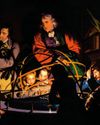
A leap in the dark
The primal play of light and shadow, whether in Leonardo's ever-so-subtle sfumato or Caravaggio's dramatic contrasts, has shaped Western art, as Michael Hall reveals

Beauty and the blimp
Inflammable airships may be gone, but a new hybrid aircraft, capable of delivering eco-friendly aviation, is set to take to the skies with a bang, finds Charles Harris
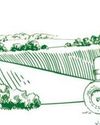
Three wishes for food and farming
Royal hedge planting, the terrible toll on Ukrainian farming and a maiden speech
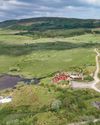
Seeing the wood for the trees
Scotland's much-evolved forestry industry has become a focus for clever investors
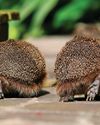
Let's fall in love
Birds do it, bees do it, even educated fleas do it. Laura Parker finds that, when it comes to creatures mating for life, persistence, patience and a little dad dancing are key to success
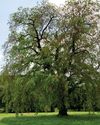
Back from the dead
THREE Wentworth elm saplings have been planted in the grounds of the Palace of Holyroodhouse, Edinburgh, and on the Highgrove estate in Gloucestershire-29 years after what was thought to be the lastknown Wentworth elm died.

A man among men
What makes a master? Beloved of the commercial art world, handled warily by art historians, the word has long been opaque. Michael Prodger investigates its many meanings-and discovers that being male confers an unfair advantage
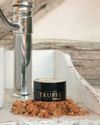
Unearth one of life's luxuries
Black diamonds are a girl's best friend this Valentine's Day, with Périgord truffle-based skincare from TRUFFE

Adventure awaits
Spend an unforgettable family holiday on the Benmore Estate and experience some of Scotland's finest wildlife and sporting activities

Let the art rule the head
Despite being a world leader in everything from jewellery to fashion and music, the UK is failing to nurture creativity at school and in regional centres. Tristram Hunt, director of the V&A Museum, calls for an urgent review